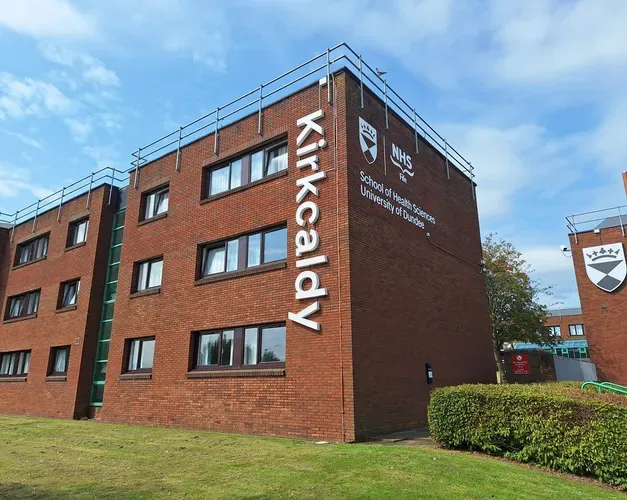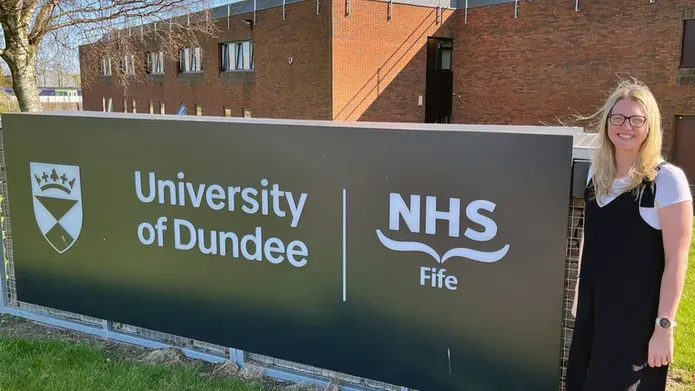Press release
Women (and men) of Fife can change perceptions of menopause, says expert
Women from across Fife came together to share experiences and shatter perceptions of menopause – with men being urged to get involved too
Published on 22 April 2025


The University of Dundee’s School of Health Sciences hosted an evening of workshops aimed at providing support and advice about a subject often considered one of society’s last remaining taboos.
The free event - We need to talk about menopause – took place at the University’s Kirkcaldy campus on Wednesday 23 April, starting at 18:00.
One of those speaking at the event was Health Sciences lecturer Lisa Ferguson. Keen to encourage more women to share their stories, she said that her personal experience of the process had initially proven problematic.
“It is a natural part of aging and for every woman the symptoms can vary widely,” she said.
“For me, there has been times in the middle of a lecture that my face has gone bright red while taking a hot flush, or that my sleep has been affected, but it is important for both women and men to know that this is part of the process. I’ve become more used to answering questions about it and have become increasingly confident in sharing my experience with friends, family and colleagues, because it has been transformative for me.
“I’m lucky that I have a good support network, but I’m aware that there are other women that may not be so fortunate. This is one of the last major stigmas that remain in our society, which is absurd. I want to bring the women of Kirkcaldy and surrounding areas together so that they realise that this is not something they have to go through alone.”
Lisa, who is an expert in dermatology at the School of Health Sciences, discussed the impact the menopause has on skin. Her workshop was one of several held on campus throughout the evening, providing free advice and answering questions from visitors.
She admits that her own experience of menopause has been testing. Hot flushes and brain fog have affected her, often when in public settings, while she has also noted emotional and physical changes. While nervous at first to tell people that these were a result of the menopause, Lisa says that she has become increasingly comfortable in raising the subject.
The We need to talk about… events are a series of evenings established by the University’s Kirkcaldy campus staff aimed at addressing some of the urgent health issues affecting the local community.
In January, a discussion on male suicide was hosted, attracting a large public audience to learn more about the issue and support services available in the Kirkcaldy area. A notable achievement of that event was the large turnout of men - a group that is traditionally hard for health experts to engage. Aware of how family, friends and colleagues of women experiencing menopause can be affected, organisers are equally keen to ensure that male audience members are equally welcome to this evening.
“I would be thrilled if men felt comfortable enough to join us,” added Lisa.
“I’ve been with my husband for 23 years and I think it’s fair to say that he had no idea how dramatically the menopause would affect me.
“Historically, women may not have wanted to discuss the menopause in front of men, but given how transformative the process can be I think it’s crucial that we are able to break down barriers and encourage husbands, partners, fathers and sons to learn more.
“It’s not just women that can help each other through the menopause. Men can be equally integral to a support network, providing loved ones with the reassurance and understanding that many women crave through this transition.
“Menopause is something which affects 50% of our population and yet it almost hides in plain sight. My hope is that the men of Kirkcaldy will come together and lead the way in changing how society discusses this subject.”